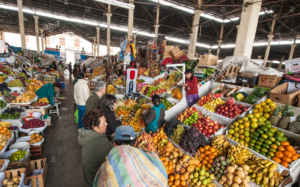Political Economy of Latin America (graduate and undergraduate). Spring 2020. CMU, Pittsburgh.

For most of its history, Latin America has been home to political and economic experiments. Revolutions, coups, military dictatorships, democratic and authoritarian regimes have coexisted with dramatic oscillations on economic policies regarding the size and functions of the state and the role of the market. Governments have experimented with a range of strategies to attain development, using the region as a laboratory of politico-economic theories. In this course, we will examine how the complex relationship between politics and economic policies helps us to explain the current level and range of economic development in the region. The course is divided into two main sections. The first part will focus on Latin American history from its conquest to the end of the First World War (1492-1918). The second portion will cover from the aftermath of the First World War to present days. In a final paper, students will discuss how current events connect to the region’s historical complex marriage between politics and economics. Students will be encouraged to submit their papers to the CIRP Journal, Panoramas or similar academic outlets.

